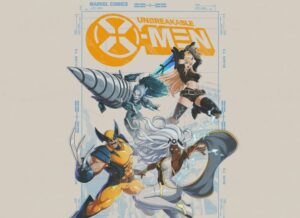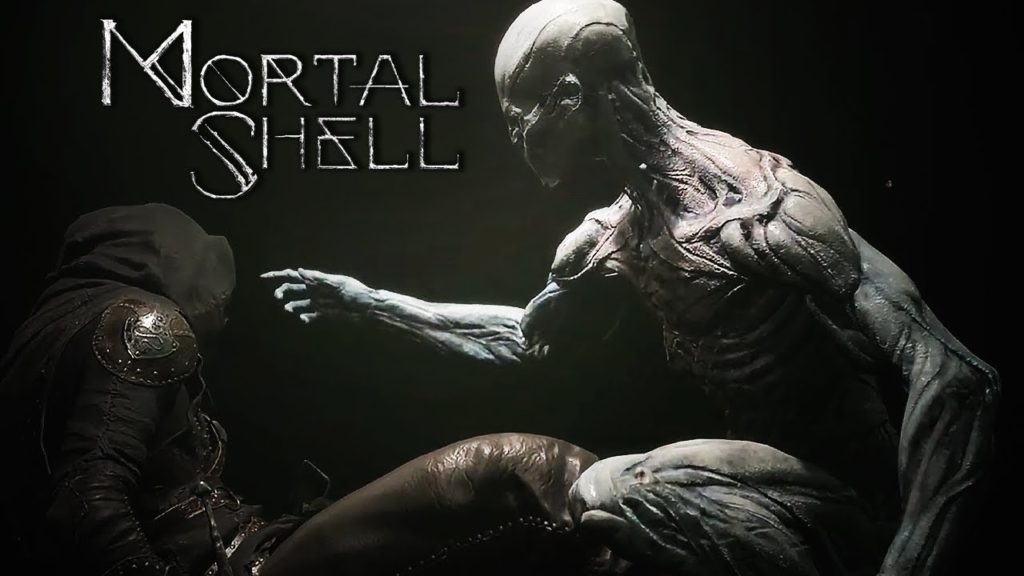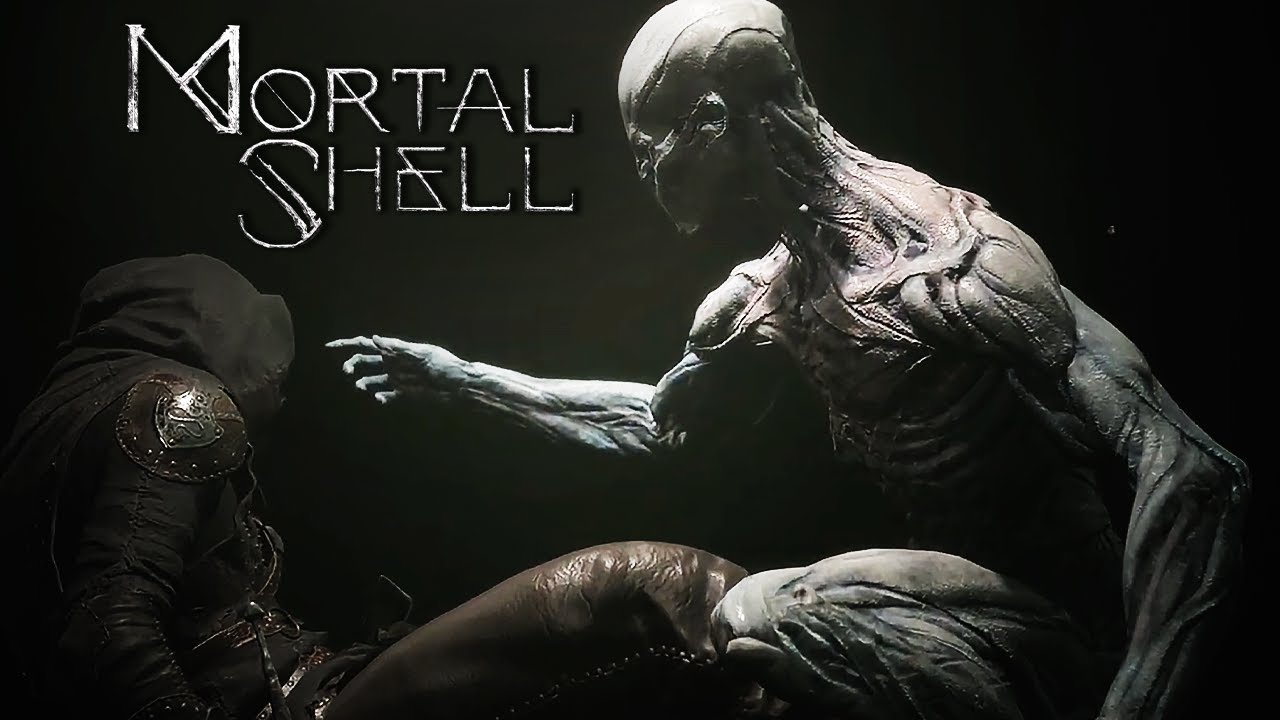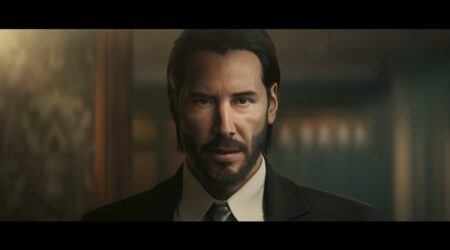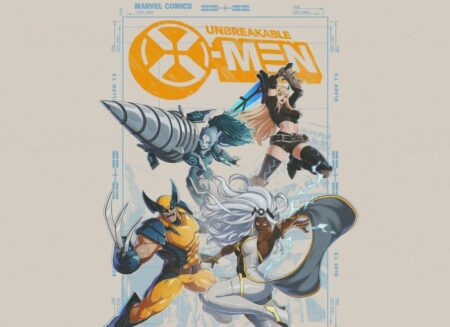There won’t be merriment around a bonfire here.
Ever since the birth and rise of FromSoftware’s hellishly arduous, yet brilliantly crafted and highly addictive games in the form of Demon Souls and Dark Souls, there has been a wave of similarly woven games that try to replicate—or at least take inspiration from FromSoftware’s masterpieces. Souls-like games, we call them. Some of them fail to deliver, while others do a splendid job. Mortal Shell is one of those games that ride the wave FromSoft started and do so spectacularly.
Mortal Shell is an action RPG souls-like game developed by Cold Symmetry, set in a dark and shattered world filled to the brim with harrowing creatures. You must traverse your way across the foreboding land to do the bidding of a mysterious creature. On your journey, you will learn the secrets and history behind the world’s current sorry state and the forces that ultimately became the agents of its destruction.
First and foremost, let’s address the fact that this is, in fact, a souls-like game. The game itself doesn’t shy away from this description. Everything from the atmosphere, storytelling approach, gameplay, difficulty, even the loading screen design is heavily inspired by Souls games. With all of that said, the game doesn’t just take pages out of FromSoft’s book and replicate it all the way.
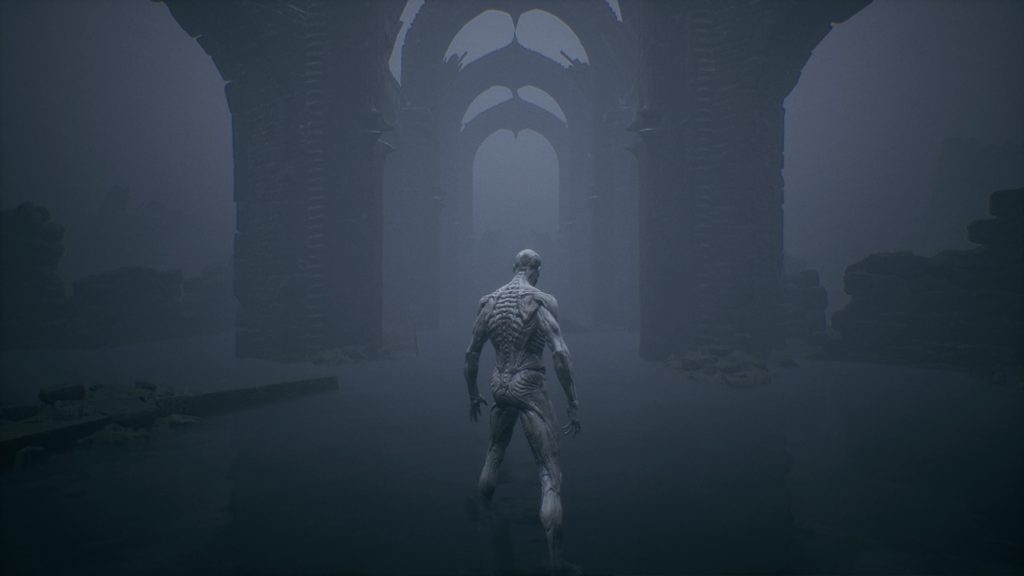
One of the things that makes Souls-like games awesome is its gameplay. Mortal Shell’s gameplay, while still very reminiscent to that of FromSoft’s titles, does have its own unique and highly interesting inputs.
You will learn one of the things that makes the game unique during the game’s tutorial area: the Harden mechanic. This mechanic, at first, seems like it’s the game’s way of making the block mechanic unique. You’ll, later on, discover just how diverse this mechanic can be. Hardening can be incorporated in combat and how you plan your offensive when fighting specific enemies, which you’ll very much need to do. It can even be used to superpower a certain attack via an upgrade. The hardening does have a cooldown which forces you to utilize other tactics while waiting for the ability to become usable again. This allows you to play fluidly and not just rely on this one mechanic alone. If you learn how to use it well, when and when not to use it, and you will be forced to, this mechanic is incredibly fun and satisfying. Well done by the developers on this end.
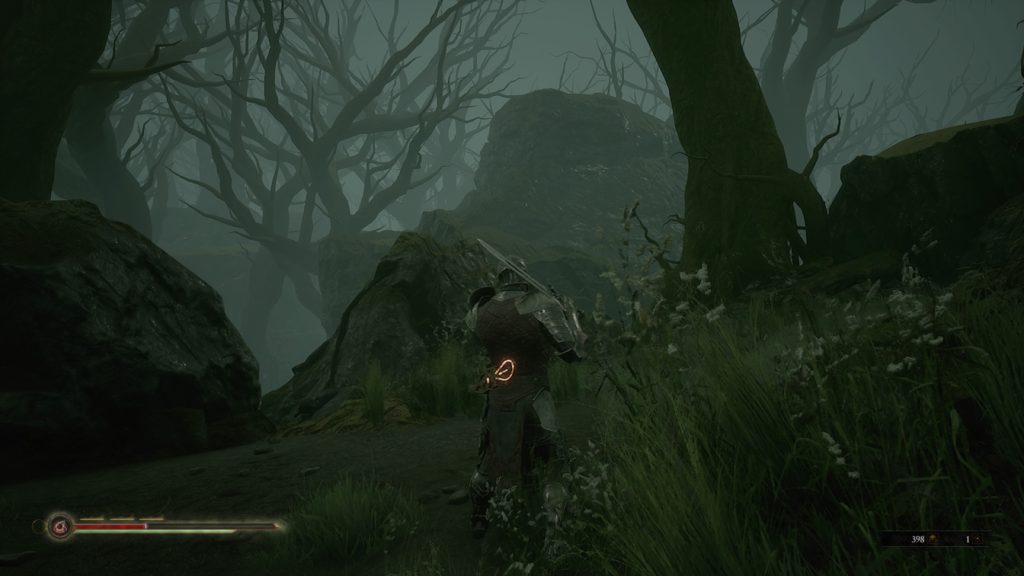
The other unique factor this game brings to the Souls-like formula is how creative the class system is. You will encounter various remains of fallen warriors scattered across the land. You can then awaken these mortal shells, inhabit their bodies, and learn their abilities. Each shell comes with its own specific attributes and unique abilities. One shell features high mobility and high stamina, while one gives the perfect balance between offense and defense. Essentially, you can choose which shell to use to match according to your play style. I really couldn’t say which shell was the best one among all of them as each of them really is unique and can stand out depending on how you prefer playing. They all play really well and provide a different characteristic that’s helpful in fighting the tenacious enemies of the game.
Just as there are different shells you can inhabit, there are also different weapons you can utilize. Similar to the shells, each weapon brings in a unique characteristic and abilities which will also diversify how you play the game. A weapon isn’t locked with a specific shell so you can use any weapon regardless of which shell you choose to play as. I did find that a specific weapon works perfectly for a specific shell, which allowed me to fully realize my class.
Another amazing aspect Cold Symmetry did with Mortal Shell is providing a fantastic “hint” system for the sleeves and weapons on the world. You’ll be given a vague direction on where to go so you won’t exactly have to blindly look for them.
When you’re not hardening to block enemy attacks or rolling out of their way, you can also choose to parry. The parry system was something I had a difficult time mastering. It can be tricky knowing when to time your parries perfectly. This is due to the unpredictability of some of the enemy’s attacks. Parrying becomes tedious when the enemy’s hacks and slashes are too quick to react to. The parry system does reward you by replenishing your health when you riposte your enemies. This risk-reward system is very useful considering the game’s lack of a proper heal system; which brings me to my next point.
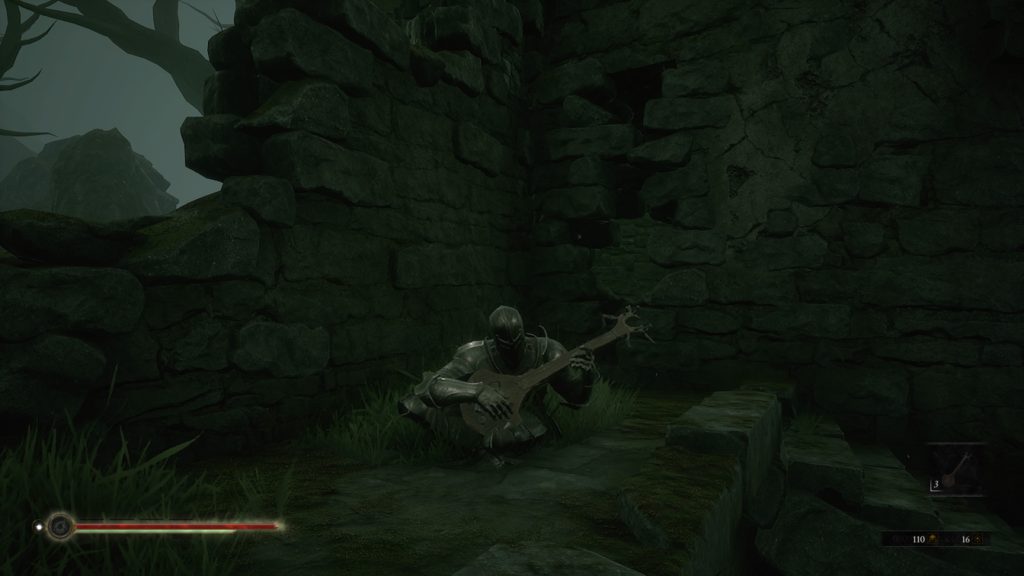
The heal system in Mortal Shell is more akin to Demon’s Souls rather than Dark Souls. Instead of having a refillable healing item similar to the Estus Flask, you have to rely on the parry-riposte-heal mechanic and other items which regenerates your HP over a period of time. This makes the game much more difficult than it already is. You will need to be more cautious as healing is very limited. If you’re used to the Dark Souls healing mechanic, you’ll be disappointed in the game’s approach to this factor. As you continue playing, you’ll be forced to learn how to make use of your resources and know when to parry instead of hardening so you can heal up.
Another aspect I found really cool while playing was every time you pick up an item, you won’t know its purpose right away. You will first have to use them to know exactly what they actually do. I found this aspect entirely brilliant from a storytelling and realism perspective. It adds to the immersion and mystery of it all. But it does enable risk, though. You can waste a really good item you could have used later on, or use an item that’s not too… useful.
You are also sort-of given two health bars in the game, similar to how you “die twice” in Sekiro. Before your HP reaches zero, your character will be expelled from the shell you’re inhabiting. You can then run up and retrieve the shell to a fully replenished health. However, if you are damaged in any way outside of the shell, you die right away. This is a very interesting take on the mechanic Sekiro brought forth. It’s unique, and it works. It’s highly interesting and it allows you to strategize your approach better.
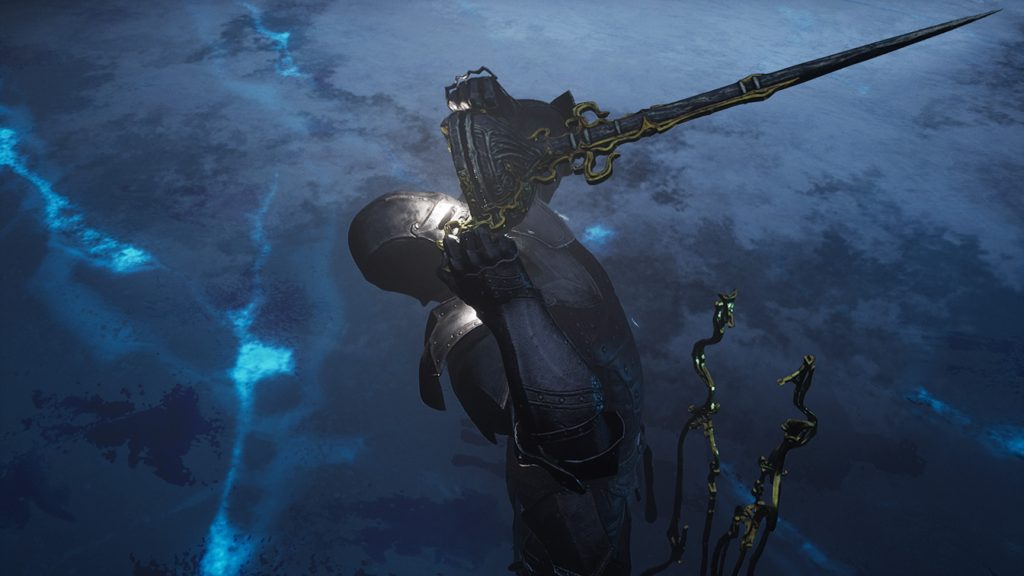
The next thing I’d like to talk about is the game’s difficulty. Souls-like games are known for their excruciating difficulty and Mortal Shell is no different. It’s pretty much covered and comes as a no-surprise that this is a difficult game. The enemies’ attacks can be very unpredictable at times. There are also traps in one specific area that are very annoying and inconvenient. The good thing is your enemies can get caught in them too so you can pretty much use that to your advantage. The damage you receive is pretty reasonable, but you can get swarmed a lot; especially if decide to run through a couple of places instead of choosing to face the enemies head-on. The game really encourages you to face your enemies and clear up an area first before you proceed—which can be satisfying if you succeed and disheartening when you don’t.
The boss fights are something souls veterans will be all too familiar with. You assess your opponent’s moves, know when to dodge, know when to attack, know whether you should parry or harden, and repeat until you’ve bested your opponent. The bosses vary in difficulty, but I can say that as long as you exclusively follow the pattern I just mentioned, you should be able to breeze your way through this game without breaking a controller.
Exploration and traversing the world can become extremely tedious, though. There are very few checkpoints within the game, which is incredibly frustrating for a game as difficult as this. Shortcuts are also very minimal, especially during the early parts of the game. Unlike other Souls games, you also cannot transport from one checkpoint to another. You will also have to do a lot of backtracking, to a point that it becomes repetitive. They do alter the atmosphere but the repetition can get to you. Once or twice would have been okay, but to be forced to backtrack every single time you have to return to a specific location, without the liberty of shortcuts, was fairly disappointing.
With the gameplay covered, let’s move forward with the game’s design and atmosphere.
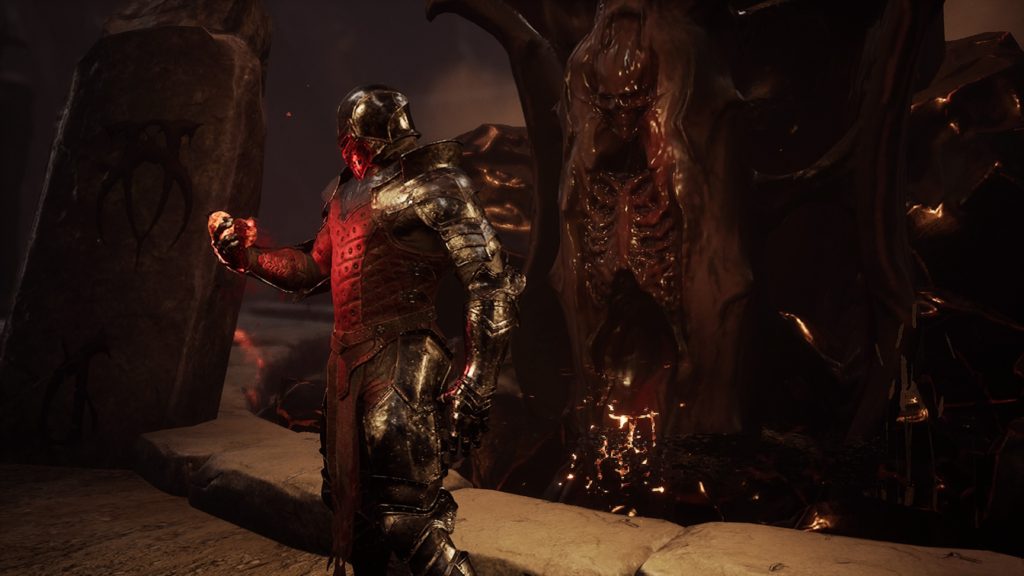
I fully bought into this game’s atmosphere. During the game’s introduction, as you go from the tutorial introduction to the first actual location of the game, you look as if you’re crawling through a birth canal. It’s designed to look like you’re being birthed into this dark and wretched place. I thought that was a pretty cool bit.
The level design is beautiful. Each area is different and unique. They bring their own specific tone without feeling too inconsistent with the game’s overall feel. The game was made with Unreal Engine 4 and it’s able to fully utilize the engine’s capabilities. The textures are crisp and smooth and the character designs are great. Your player’s empty vessel design is the perfect combination of creepy and cool and the same can be said for a vast majority of the other characters.
I did stumble upon a couple of rendering issues once or twice, but I expect this is something the developers will be able to fix (hopefully) after a few patches. Once again, nothing too game-breaking, and they are only ever noticeable if you really pay attention to them.
There are scenes on a few cut scenes which I found to be oddly spliced together. It’s as if the game glitches for just a few milliseconds in between cuts. These are more prominent later in the game. But again, nothing too game-breaking or too in-your-face. You’ll know it when you see it.
Another aspect that makes the game’s atmosphere even better is the audio. The game’s music is very subtle. It’s not too grand that you notice it, and that’s not necessarily a bad thing for a game like this. Audio plays a massive role in the gameplay as well. You can turn to auditory cues to know when to dodge out of an incoming attack or know which direction an enemy is coming from.
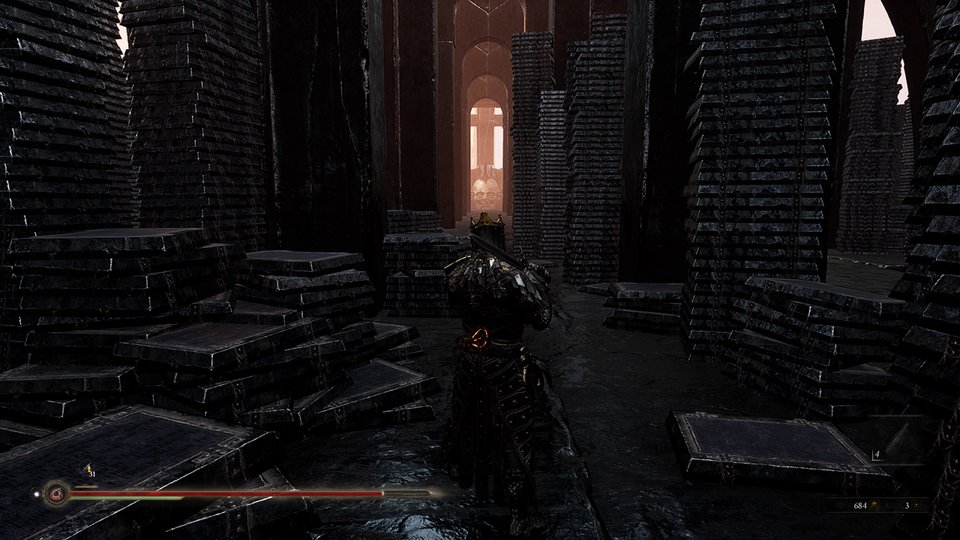
Finally, the game’s story. The non-linear storytelling follows exactly through FromSoftware’s style. Instead of being told the story of the world outright, you will have to piece it together yourself through dialogue, interactions, item descriptions, and lore inscriptions scattered around the world. Beneath the ambiguous veil that is the storytelling of Mortal Shell is a compelling story about sins, pride, desire, war, and disaster. I don’t claim to know all of the finer intricacies of the game’s more elaborate plot points as of writing, but you can basically picture out the game’s narrative once the credits roll.
The dialogue, description, overall writing of the game is pretty great as well. It’s exactly the level of sophistication you’d expect from a game that was designed like this. The voice acting, although minimal, is perfect for whenever it is present.
Another thing that requires mentioning: the loading time. The game does have a considerably lengthy loading time compared to the other newer games of this generation. It’s one of those things you notice after consecutively playing games with quick load times and will make you think to yourself, “this is taking a little bit longer.”
The game is not as long as I would’ve liked it to be, which is a shame given how much fun I was having. The game only has a run time of about 9 to 12 hours, which is fairly short. This becomes understandable if you consider the fact that there are only about 15 people who made willed this game to fruition.
All-in-all, Mortal Shell is not the perfect Souls-like game out there, but it’s most certainly one of the best ones. It has its glaring flaws, but they’re drowned out by the amazing craftsmanship of the game’s creators and their taste for distinction. Cold Symmetry did a fantastic job of adding their own unique touches to the Souls-like formula to really make this game stand out. Mortal Shell is more of like an ode to the Souls games rather than a copy of it, and it is quite the spectacular ode.


